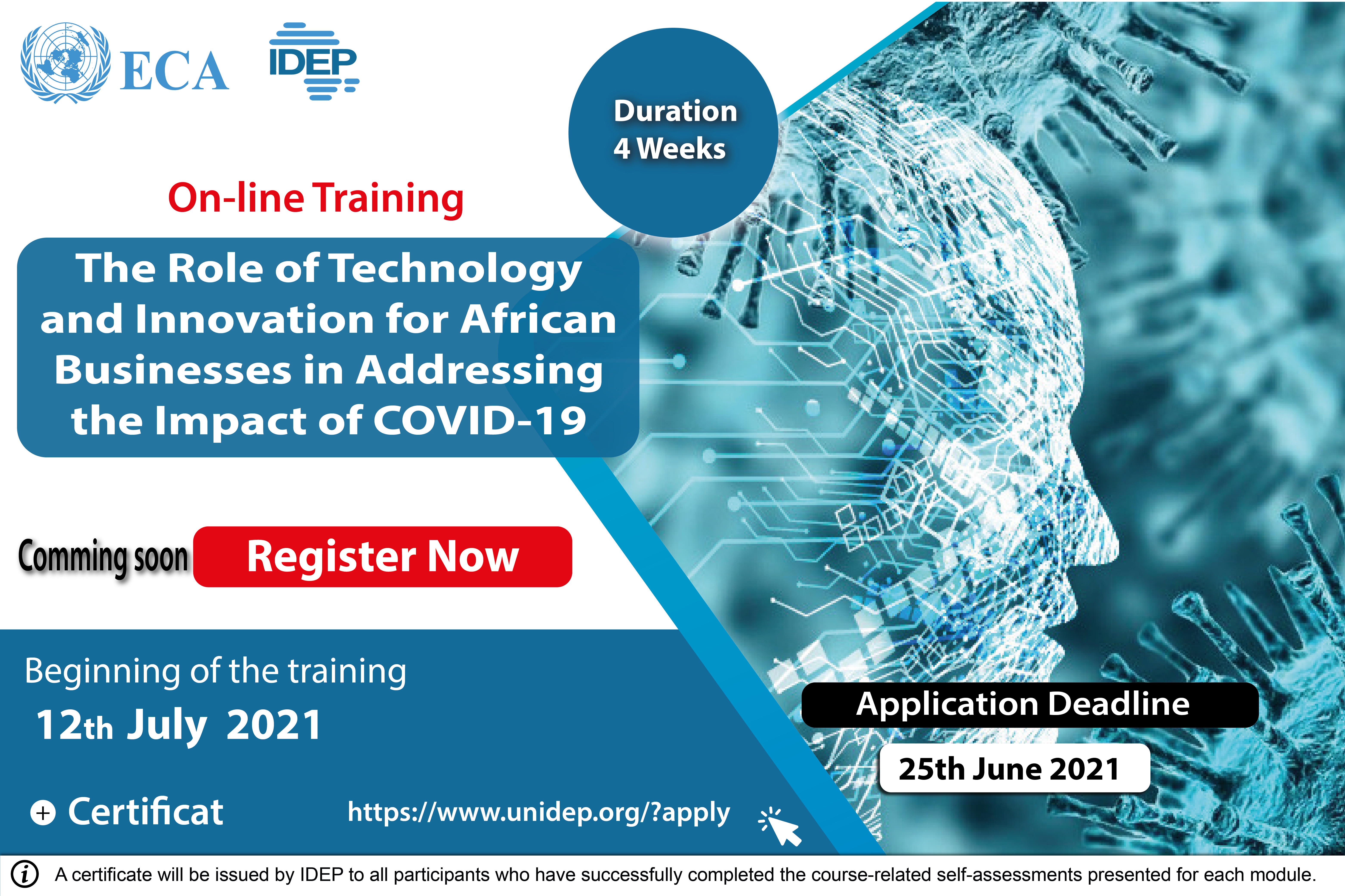The Role of Technology and Innovation for African Businesses in Addressing the Impact of COVID-19
PROGRAM RATIONALE
Challenges discovered as a result of both surveys included - but were not limited to operational issues such as the “lack of cash flow”, “reduction of opportunities to meet new customers”, and “changing business strategies and offering alternative products/services”. Survey results also presented an unsatisfactory disposition toward government responses to the COVID-19 crisis. Proposed government interventions by businesses include “postponed tax payments”, “providing working capital to firms”, “subsidising wages”, “access to low interest loans”, and “assistance to workers from the informal sector”.
Conclusively, both surveys confirmed the role of technology and innovation as a strategy used by businesses to address the impact of Covid-19. For example, digital technologies allowed employees to remain in employment and allowed firms to maintain continuity in their business activities, therefore avoiding drastic reduction in capacity utilization by having their employees work remotely.
Technology and innovation can be critical drivers for enhancing workers' and factor productivity and firm's competitiveness at a micro-level while enhancing economic growth through total factor productivity growth at a macro-level.
In order to support member states in addressing the impacts of Covid-19 on micro, small and medium sized enterprises (MSMEs), the United Nations Economic Commission for Africa UNECA, through its Sub-regional office for Southern Africa (SRO-SA) are implementing jointly with other United Nations agencies. a UN Development Account-funded project titled "Global initiative towards post-Covid-19 MSME sector".
The objective of the project is to develop and implement capacity building tools for governments and MSMEs to facilitate resurgence and strengthen resilience of MSMEs in developing countries and economies in transition to mitigate the economic and social impact of the global Covid-19 crisis and to facilitate the contribution of MSMEs to the implementation of SDGs.
The project is structured in five clusters addressing most critical areas of the MSME recovery:
- Mobilize entrepreneurial ecosystem and strengthen business skills
- Simplify business registration and facilitate formalization
- Improve access to finance/financial literacy
- Increase access to technology and innovation
- Enhance access to markets
LEARNING OBJECTIVES
The overarching objective of this course, as a deliverable under the “Global initiative towards post-Covid-19 MSME sector” project, is to build awareness and capacities of entrepreneurs, businesses and policy makers in Africa on the role that technology and innovation can play in assisting businesses address the impacts of economic shocks such as Covid-19 and build resilience against future shocks.
